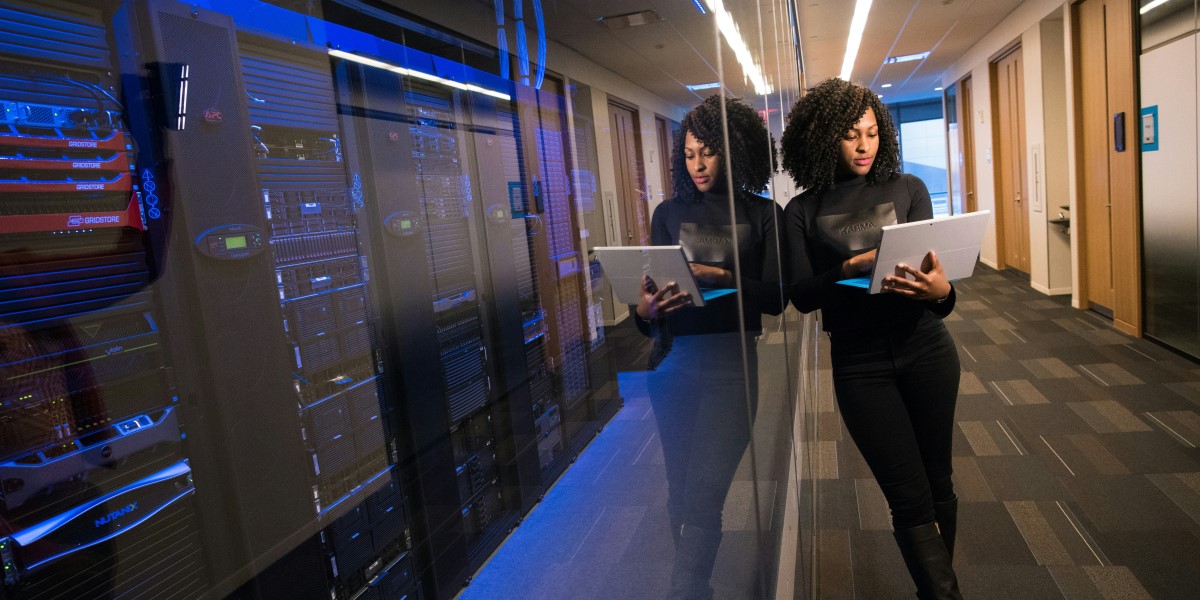Bulk orders are an integral aspect of many retailers’ operations, especially in sectors like wholesale, business-to-business (B2B), and e-commerce. These large-volume purchases can come from businesses needing inventory, organizations requiring promotional products, or even individual consumers making significant purchases. Handling bulk orders efficiently is crucial for maintaining customer satisfaction, streamlining supply chain processes, and ensuring profitability. In this article, we will explore the various strategies and best practices retailers use to manage bulk orders, from order processing to shipping and delivery.
The Importance of Bulk Orders in Retail
Bulk orders are essential in retail for several reasons. They allow businesses to meet customer demand, secure better pricing, and streamline inventory management. For retailers, bulk orders provide an opportunity to move larger quantities of products at once, improving cash flow and helping with seasonal stock management.
Moreover, bulk orders often involve special pricing agreements or contractual obligations, making them a critical part of many business models. Handling these orders efficiently requires a blend of advanced logistics, clear communication, and a customer-focused approach to ensure smooth transactions.
Business-to-Business (B2B) Transactions
Bulk orders are especially prominent in B2B retail. Companies that produce goods or services often need to stock large quantities of materials or products, whether to meet production requirements or fulfill client needs. These orders can be more complex than typical consumer purchases, as they often involve negotiations, invoicing, and customized orders based on the buyer’s requirements.
B2B transactions typically feature higher order values and a different set of expectations compared to consumer-facing orders. Retailers need to accommodate the special demands of their business clients, such as negotiated pricing, flexible delivery timelines, or customized products.
Key Challenges in Handling Bulk Orders
While bulk orders can be lucrative for retailers, they come with a set of challenges. Effectively managing bulk orders requires robust systems and strategies to avoid delays, miscommunication, and errors. Let’s examine some of the main challenges retailers face in handling bulk orders.
Inventory Management
Accurately tracking inventory levels is one of the biggest challenges when dealing with bulk orders. A bulk order can quickly deplete a retailer’s inventory, especially if the products are in high demand. Retailers need to have effective inventory management systems in place to prevent stockouts and overstock situations. Real-time inventory tracking, automated stock replenishment, and predictive analytics can help ensure that bulk orders are fulfilled on time.
Order Fulfillment and Packaging
The fulfillment process for bulk orders can be much more complex than smaller individual orders. Retailers must ensure that products are carefully packed, labeled, and shipped to meet the specific requirements of bulk buyers. Bulk orders might require customized packaging, palletizing, and special handling for large or fragile items. Moreover, multiple products within a bulk order may need to be sourced from different warehouses or locations, adding another layer of complexity to the fulfillment process.
Delivery and Logistics
Delivering bulk orders involves managing logistics more efficiently. Since bulk orders tend to be heavier and larger than regular orders, retailers must coordinate with freight carriers or third-party logistics (3PL) providers to ensure timely delivery. Often, bulk orders require specialized transportation, such as freight trucks, or even international shipping if the buyer is located overseas.
Effective route optimization, real-time tracking, and maintaining strong relationships with reliable shipping partners are essential components in ensuring bulk orders are delivered on time and without damage.
How Retailers Handle Bulk Orders: Strategies and Best Practices
Given the various challenges of handling bulk orders, retailers must adopt specific strategies to efficiently process and manage them. Below are some of the best practices that retailers use to handle bulk orders:
1. Streamlined Order Processing Systems
Retailers typically use advanced order processing systems, such as Enterprise Resource Planning (ERP) software, to manage bulk orders. These systems allow retailers to track orders in real time, monitor inventory levels, and ensure accurate order fulfillment. ERP systems also integrate with Customer Relationship Management (CRM) tools to maintain communication with customers and vendors throughout the order process.
Automation plays a significant role in streamlining bulk order processing. Retailers often automate routine tasks such as generating invoices, confirming stock availability, and sending order confirmation emails. By automating these tasks, retailers can reduce the risk of human error, speed up processing times, and improve overall operational efficiency.
2. Custom Pricing and Contracts
Bulk orders often involve custom pricing structures, depending on the quantity ordered, customer loyalty, or special promotions. Many retailers offer tiered pricing models, where the unit price decreases as the quantity ordered increases. For example, a retailer might offer a 10% discount on bulk orders of 100 units or more.
Establishing pricing contracts in advance with business customers can help ensure a smooth transaction. Contracts may outline the agreed-upon prices, delivery schedules, and other terms, ensuring that both the retailer and customer are aligned before the order is placed. These contracts help minimize the chances of misunderstandings and disputes during the ordering and delivery process.
3. Managing Inventory for Bulk Orders
Managing inventory efficiently is critical when handling bulk orders. Retailers often work with forecasting tools to predict demand and plan for bulk orders. For instance, retailers may look at historical data to predict busy seasons or high-demand periods when bulk orders are likely to increase.
Another approach is to maintain a safety stock or buffer stock specifically for bulk orders. This reserve ensures that large orders can be fulfilled even if demand exceeds expectations. Retailers may also use just-in-time (JIT) inventory systems to reduce excess stock and optimize warehouse space.
Having clear communication with suppliers is also crucial in managing inventory for bulk orders. Retailers should maintain a strong relationship with their suppliers to ensure quick restocking of items that are in high demand or frequently ordered in bulk.
4. Specialized Packaging and Fulfillment
Bulk orders often require specialized packaging to ensure that goods are shipped securely and efficiently. Retailers need to invest in packaging solutions that can handle large quantities or bulky products. This may involve using larger cartons, pallets, or custom crates to package goods. Some retailers also offer packaging customization options to meet the specific needs of business customers, such as branded packaging for promotional items.
Many retailers partner with third-party logistics providers (3PLs) that specialize in bulk order fulfillment. These 3PL providers often have the necessary infrastructure, including large warehouses, fulfillment centers, and the ability to manage bulk packaging and shipping. By outsourcing these tasks, retailers can save time, reduce labor costs, and scale their operations more effectively.
5. Expedited Shipping and Delivery Options
Meeting the delivery deadlines for bulk orders is essential. Retailers who handle large orders often offer multiple shipping options to meet different customer needs. While bulk orders often require longer shipping times than smaller orders, expedited shipping can be offered for a premium fee.
For local bulk orders, retailers might opt for regional delivery services or courier partners to ensure faster delivery. For international bulk orders, customs processing and international freight forwarding are also part of the logistics considerations. Many retailers also provide real-time tracking systems so customers can monitor their bulk orders and receive updates on shipping progress.
6. Communication and Customer Service
Communication with customers is critical when handling bulk orders. Retailers need to keep customers informed about the status of their order, including inventory availability, order processing times, and shipping updates. Clear communication helps to manage customer expectations and can minimize issues if delays or problems arise.
Some retailers set up dedicated account managers or support teams for handling bulk orders, especially for B2B clients. These teams can address inquiries, resolve problems quickly, and ensure that the order is handled according to the customer’s requirements. Offering personalized customer service for bulk orders can help build long-term business relationships and ensure repeat orders.
7. Post-Sale Support and Returns
Bulk orders often involve larger shipments, and with that comes a higher likelihood of issues during delivery, such as damages or incorrect items. Having a clear returns policy and an efficient system for handling returns or exchanges is essential for customer satisfaction. Many retailers have specialized return processes for bulk items, including return authorizations, inspections, and product replacements.
Retailers should also provide after-sales support to assist with any issues post-delivery. This includes resolving payment discrepancies, providing product warranties, or offering troubleshooting assistance for items purchased in bulk.
Effective Bulk Order Management is Key to Retail Success
Handling bulk orders effectively is a crucial part of retail success, particularly for businesses operating in B2B, wholesale, or e-commerce. Retailers who can manage these orders efficiently through streamlined order processing, effective inventory management, specialized packaging, and clear communication can not only ensure customer satisfaction but also create opportunities for increased revenue and stronger business relationships.
The growing trend of online bulk orders and increased demand for faster delivery makes it necessary for retailers to continually invest in their logistics systems, adapt to consumer expectations, and refine their operational strategies. By embracing best practices and utilizing technology, retailers can handle bulk orders with ease and continue to thrive in an increasingly competitive marketplace.









